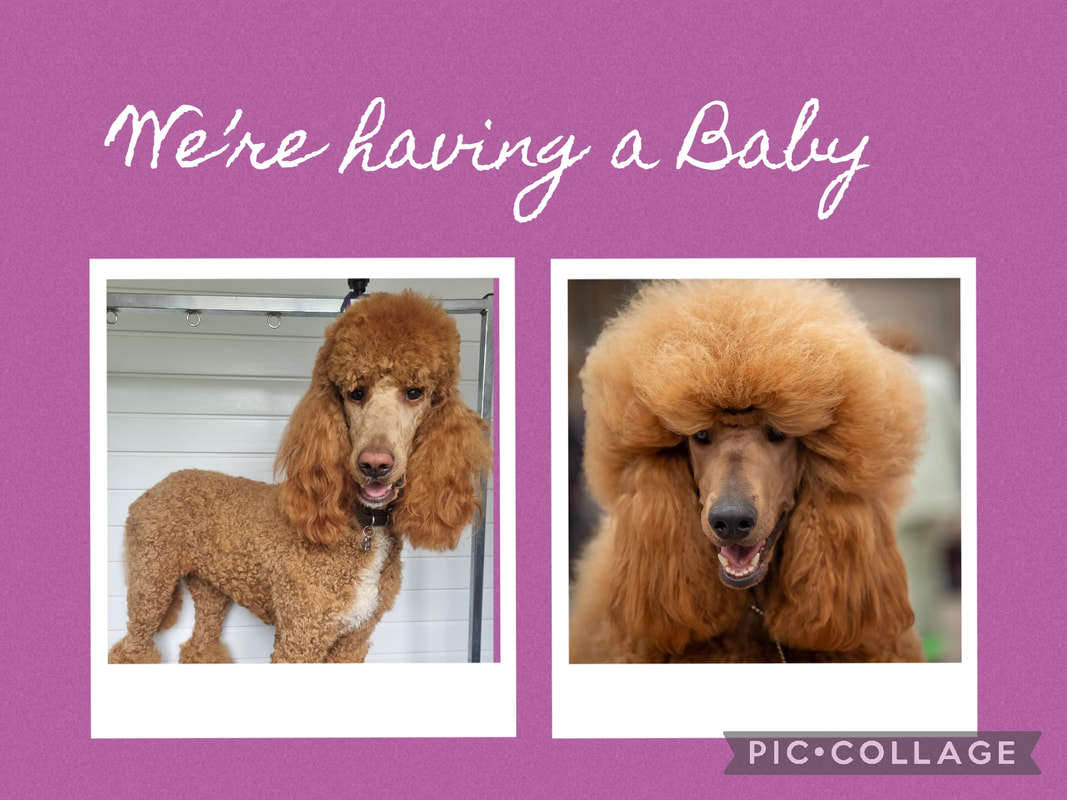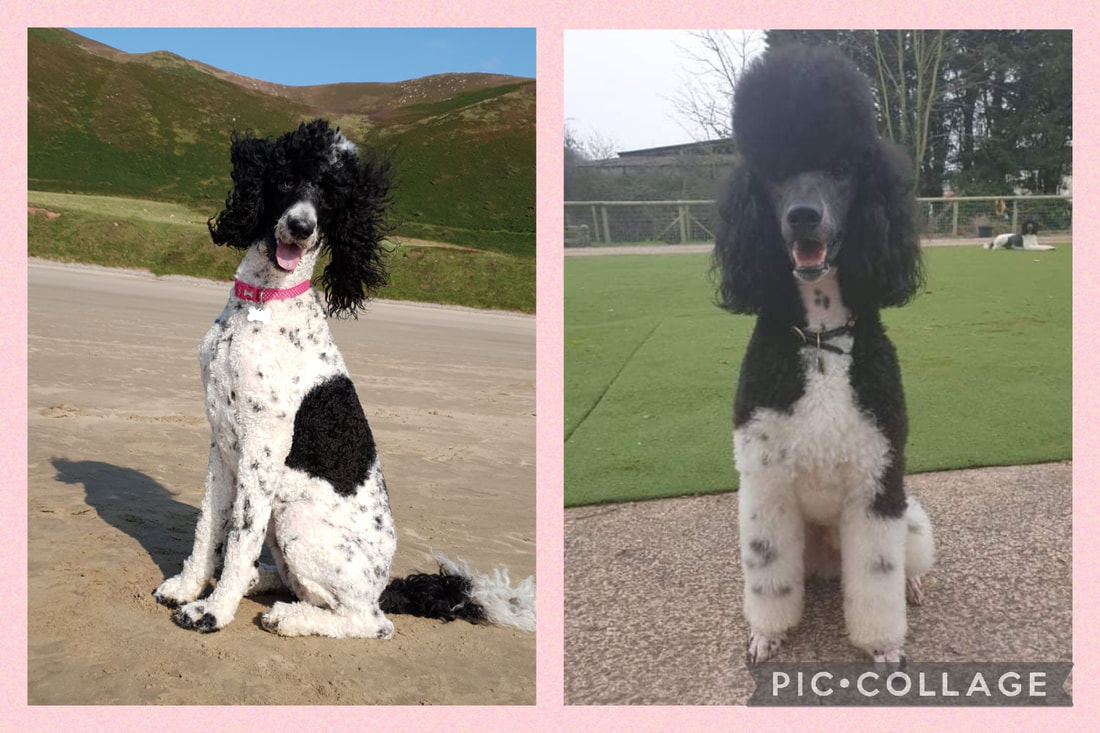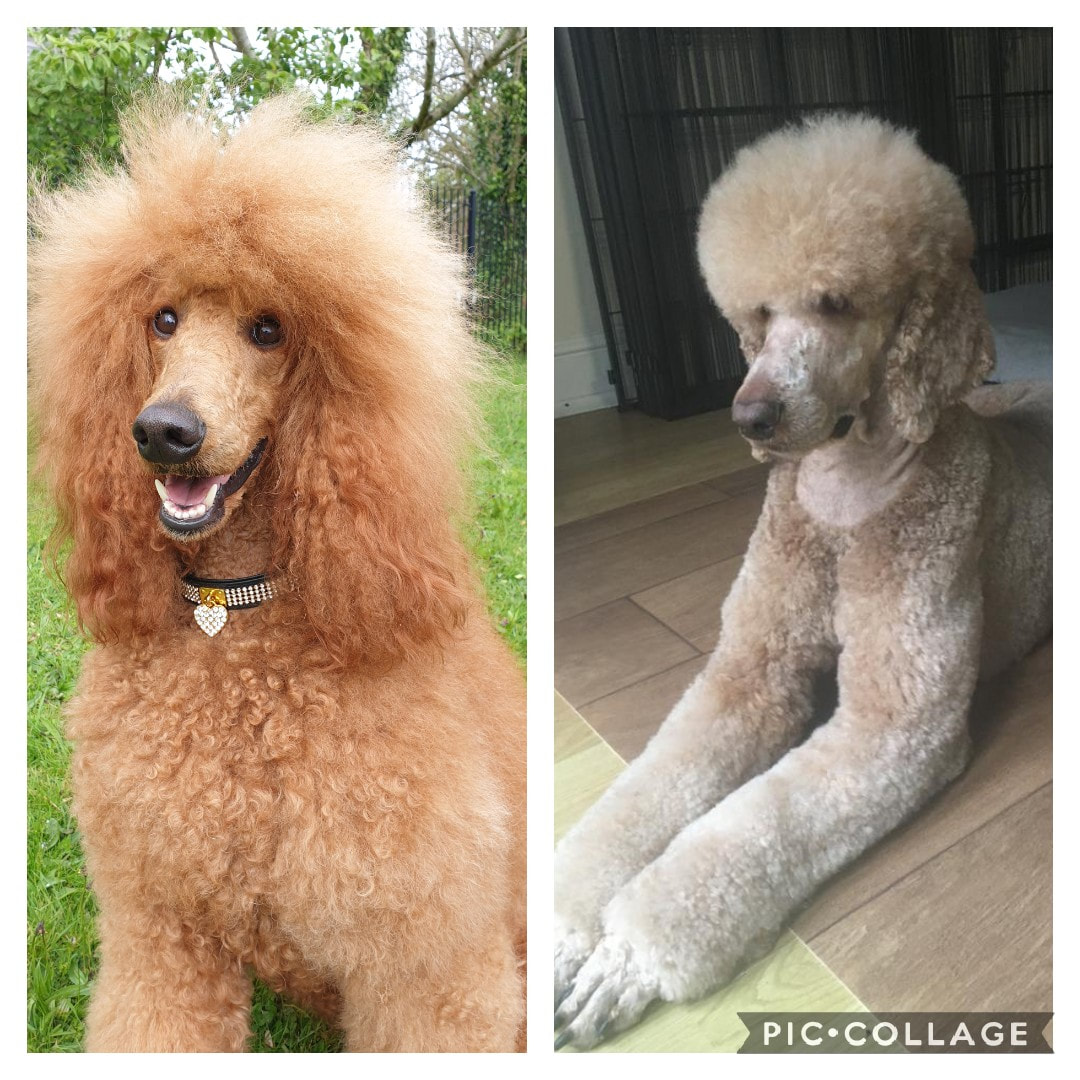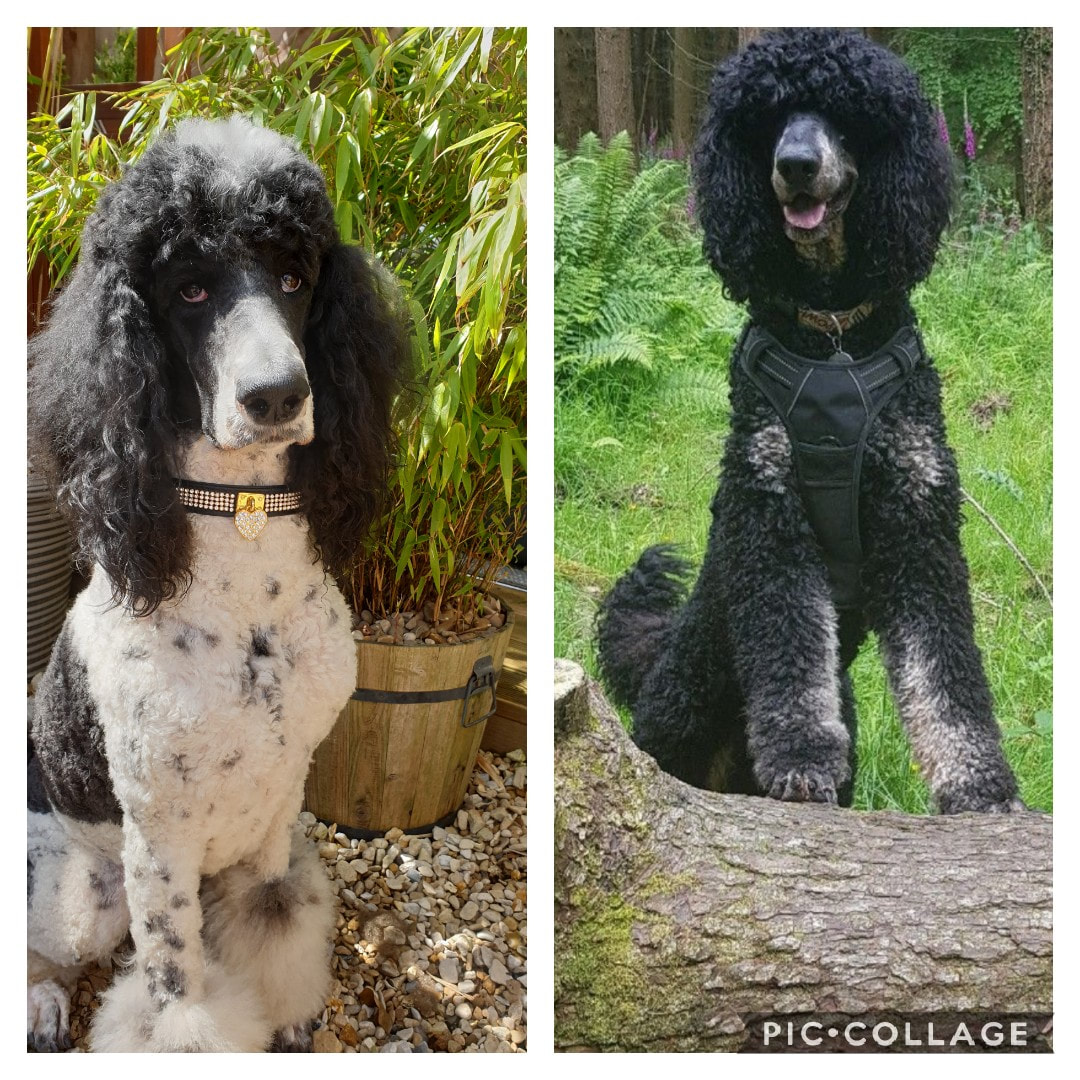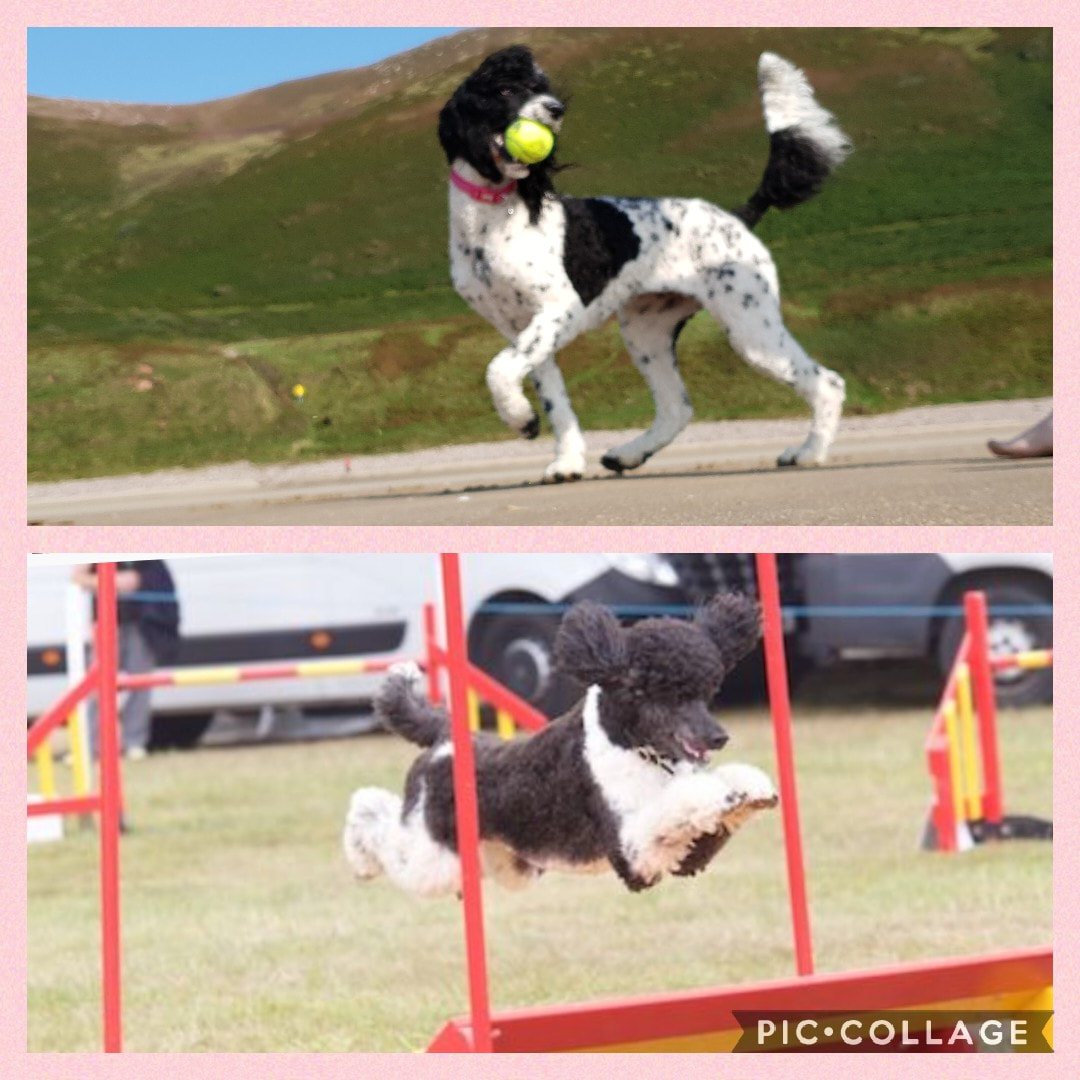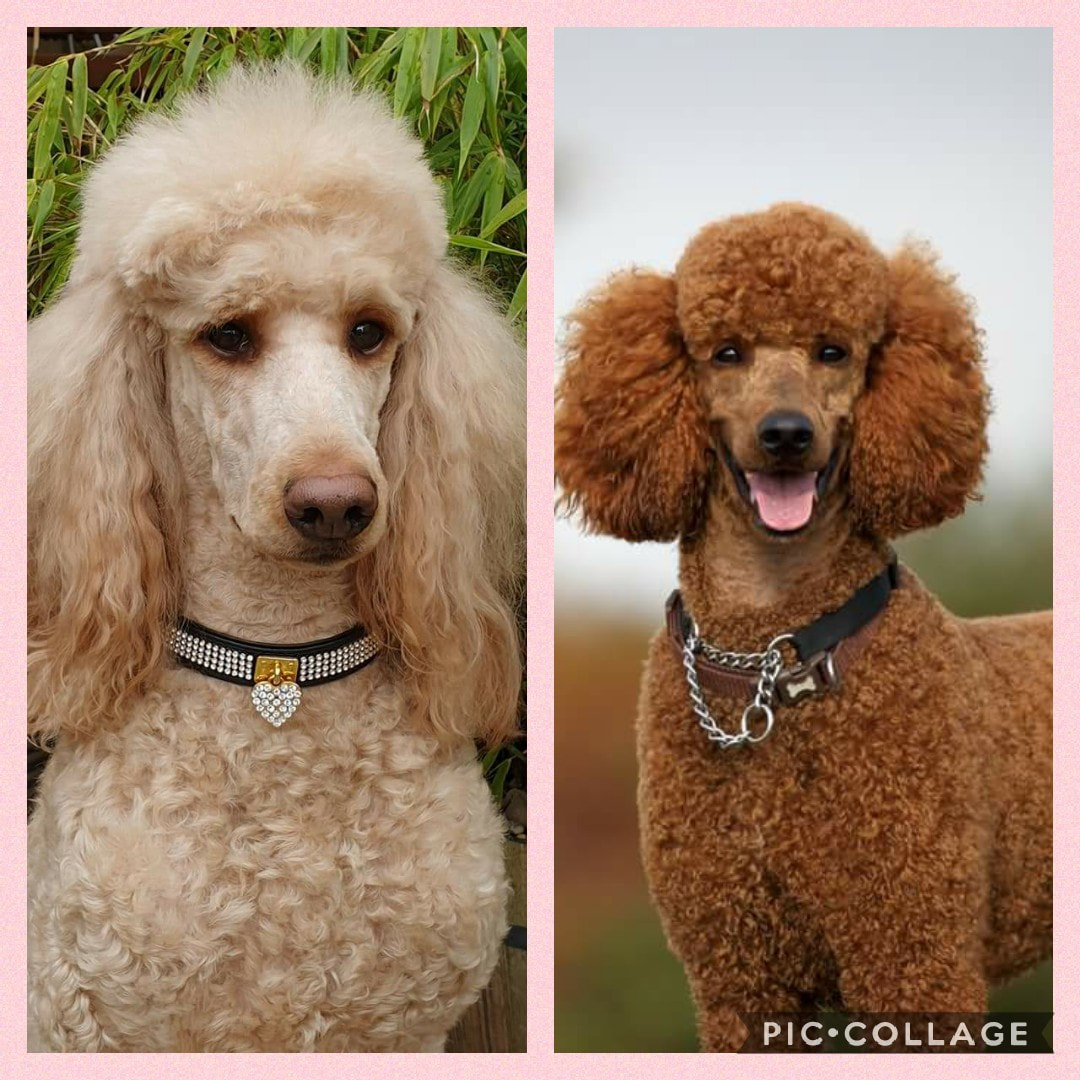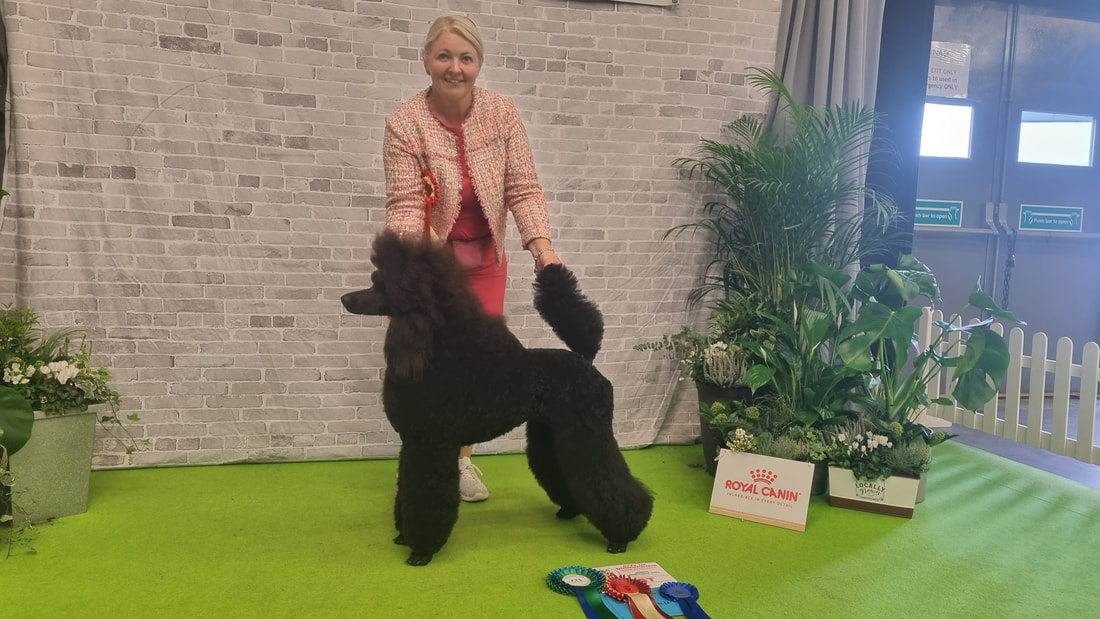Zigi, Saffy And Phoenix
Waiting List Is Now Open For 2024
Waiting List Is Now Open For 2024
Phoenix And Chester 2023
Brock & Chester 2023
BROCK And ZUZU 2022
Saffy and Jake 2021
Brock and Amos 2020
Brock and Jeeves 2021
Our waiting list for the planned breeding with
Brock And Zuzu
2022
is now closed.
Our waiting list for the planned breeding between Saffy and Jake 2021 Babies is now closed for spring.
Our waiting list for the planned breeding between Brock and Jeeves 2021 Babies is now closed for spring.
Your Puppy will take home a puppy wallet containing.
* Kennel Club Certificate
* Copies of parents health testing
* Photographs of the parents and puppy development
* 4 weeks free insurance with PetPlan
* 2.5kg Bag Of Puppy Food
* Information on breed/socialization/grooming/information on worming schedule/exercise
* Puppy contract....
* Puppy will have been microchipped with all relevant documents enclosed in a file
* Scented blanket/Teddy/Toys
* Life time of help and support
* All puppies are endorsed for export and breedingo
Brock And Zuzu
2022
is now closed.
Our waiting list for the planned breeding between Saffy and Jake 2021 Babies is now closed for spring.
Our waiting list for the planned breeding between Brock and Jeeves 2021 Babies is now closed for spring.
Your Puppy will take home a puppy wallet containing.
* Kennel Club Certificate
* Copies of parents health testing
* Photographs of the parents and puppy development
* 4 weeks free insurance with PetPlan
* 2.5kg Bag Of Puppy Food
* Information on breed/socialization/grooming/information on worming schedule/exercise
* Puppy contract....
* Puppy will have been microchipped with all relevant documents enclosed in a file
* Scented blanket/Teddy/Toys
* Life time of help and support
* All puppies are endorsed for export and breedingo
Jasmine & Hamish 2018
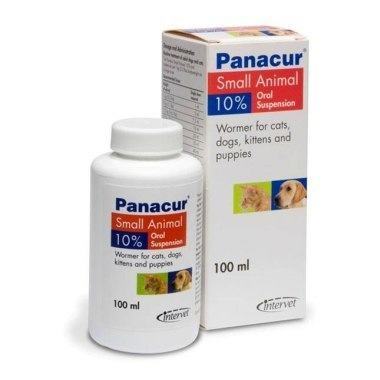
Panacur 10% is a broad spectrum wormer for the treatment of dogs, cats, puppies and kittens infected with Roundworms, Tapeworms andor Lungworms. 1 ml contains 100 mg active ingredient fenbendazole. A white oral suspension of fenbendazole as a ready to administer oral anthelmintic for domestic dogs, cats, puppies and kittens. 1 ml contains 100 mg active ingredient fenbendazole. Uses: For the treatment of adult dogs and cats infected with gastro-intestinal roundworms and tapeworms. For the treatment of puppies and kittens infected with gastro-intestinal roundworms and puppies infected with protozoa (Giardia spp.). For the treatment of pregnant dogs to reduce prenatal infections with roundworm and the transfer of roundworm and lungworm to the pups via the milk. Also for the treatment of dogs infected with lungworm or protozoa Giardia spp., and cats infected with lungworm.Also has an ovicidal effect on roundworm eggs.
Zantescwtch prides itself on producing wonderful, healthy and quality puppies for the family, to live indoors with the family and to be loved as family members. I care for these babies with the love and devotion they deserve. As a breeder you strive for health and temperament, for puppies that will grow into dogs that will have long lasting and fulfilling, enjoyable lives....Below are details of how we raise and socialize our puppies. There is a window of opportunity, a CRITICAL time, to prepare puppies to be well balanced, happy, socialized puppies that are ready to take on the world.
Whelping
My puppies are whelped upstairs in a spare bedroom into a whelping box, lined with vet bedding, where mum and puppies can enjoy the peace and quiet that is needed for the first 3 weeks of their lives. Here mum is relaxed and content, feeding and cleaning her new born babies. My role in this is to clean the whelping box, make sure the temperature of the room is correct and that mum is feeding well and eating well herself. All other dogs are kept away from this room during this time.
Puppies @ 3 weeks - 8 weeks
At 3 weeks I bring the puppies downstairs to begin their lives in our kitchen/family room. Here the begin their socialization. They have a very large crate which is separated into 2 sections...one section for sleeping and playing the other as a toilet area. As the puppies get older they start to interact with the older dogs, playing and in most cases chasing them. In the room we have a T.V which they can watch!. At 4 weeks i have prespective new owners come along and start viewings.
I begin clipper training in readiness for grooming at 4 weeks i shave their faces, feet and tail and this continues every week until the puppies leave for their forever homes. Grooming is an integral part of a standard poodles life and I believe that an early introduction to this is imperative.
Puppies @ 8 weeks
At 8 weeks the puppies leave for their new homes.
Puppies leave with their individual kennel club certificate, copies of parents health certificates, information on worming and veterinary health checks and vaccination cards, microchip documents, photos of the parents, Contract,A file which includes information on exercise, diet and well being, a scented puppy blanket/Teddy,Toys and 2.5kg bag of puppy food. Puppy is also insured by Pet Plan for 4 weeks.
You are advised on grooming, puppy socialization classes and encouraged for regular updates on your puppy and it goes without saying a lifetime of support.
The Critical Stages of Dog's development and Volhard Puppy Aptitude Test
The following section is reprinted from an article "A Novice Looks At Puppy Aptitude Testing"
By Melissa Bartlett from Kees News - August 84 issue
...The following is a brief synopsis of the critical stages of the dog as revealed by the research of Scott and Fuller.
1-3 weeks (1-20 days)
The puppy needs warmth, food, sleep and his mother. Neurologically very primitive, the puppy responds by reflex and essentially it is unable to
learn.
4th week (21-28 days)
The puppy needs its mother most at this time. It is a period of extremely rapid sensory development. Neurologically the brain is suddenly able to receive messages; the circuits are "turned on". Weaning should not take place at this time; the puppy is extremely vulnerable.
5th-7th week (29-49 days)
The puppy needs his mother and litter-mates. Dogs removed from the
litter at this period tend to be unable to socialize with other dogs, may fight, refuse to breed, etc. Contact with humans and gentle training is beneficial and helps the pup set the stage for more intense contact with humans later on.
7th week (49th-56th day)
This is the ideal time for the puppy to transfer his loyalty to his new owner. Mentally he is able to learn whatever any adult dog can learn, his being is neurologically complete. However, physically he will not be able to do the tasks of an adult dog. For example he can't jump one and a half times his height with the dumbbell in his mouth, but he can learn the exercise if it is scaled down to his size. Socialization and training should continue on a regular basis. Bonds formed at this time are extremely strong.
8-10 weeks (57-70 days)
This is the fear-imprinting period. Any traumatic experience such
as shipping, ear cropping, severe punishment, etc. may have a lasting effect on the dog. New experiences must be non-fear producing. Proper training and socialization should continue.
11-16 weeks (71-112 days)
The puppy continues to learn from his experiences. If left with
other dogs, he may become imprint only to dogs; taking his leadership from them and never developing a strong relationship with human beings. Lack of socialization with humans will result in shy behaviour such as found in wild animals. Lack of exposure to other environments and exploration may result in "kennel syndrome", where the dog is unable to cope with any change from his routine environment. .
This is another useful Lilnk
http://www.cesarsway.com/dog-care/new-dog/puppy-development-stage-3
Whelping
My puppies are whelped upstairs in a spare bedroom into a whelping box, lined with vet bedding, where mum and puppies can enjoy the peace and quiet that is needed for the first 3 weeks of their lives. Here mum is relaxed and content, feeding and cleaning her new born babies. My role in this is to clean the whelping box, make sure the temperature of the room is correct and that mum is feeding well and eating well herself. All other dogs are kept away from this room during this time.
Puppies @ 3 weeks - 8 weeks
At 3 weeks I bring the puppies downstairs to begin their lives in our kitchen/family room. Here the begin their socialization. They have a very large crate which is separated into 2 sections...one section for sleeping and playing the other as a toilet area. As the puppies get older they start to interact with the older dogs, playing and in most cases chasing them. In the room we have a T.V which they can watch!. At 4 weeks i have prespective new owners come along and start viewings.
I begin clipper training in readiness for grooming at 4 weeks i shave their faces, feet and tail and this continues every week until the puppies leave for their forever homes. Grooming is an integral part of a standard poodles life and I believe that an early introduction to this is imperative.
Puppies @ 8 weeks
At 8 weeks the puppies leave for their new homes.
Puppies leave with their individual kennel club certificate, copies of parents health certificates, information on worming and veterinary health checks and vaccination cards, microchip documents, photos of the parents, Contract,A file which includes information on exercise, diet and well being, a scented puppy blanket/Teddy,Toys and 2.5kg bag of puppy food. Puppy is also insured by Pet Plan for 4 weeks.
You are advised on grooming, puppy socialization classes and encouraged for regular updates on your puppy and it goes without saying a lifetime of support.
The Critical Stages of Dog's development and Volhard Puppy Aptitude Test
The following section is reprinted from an article "A Novice Looks At Puppy Aptitude Testing"
By Melissa Bartlett from Kees News - August 84 issue
...The following is a brief synopsis of the critical stages of the dog as revealed by the research of Scott and Fuller.
1-3 weeks (1-20 days)
The puppy needs warmth, food, sleep and his mother. Neurologically very primitive, the puppy responds by reflex and essentially it is unable to
learn.
4th week (21-28 days)
The puppy needs its mother most at this time. It is a period of extremely rapid sensory development. Neurologically the brain is suddenly able to receive messages; the circuits are "turned on". Weaning should not take place at this time; the puppy is extremely vulnerable.
5th-7th week (29-49 days)
The puppy needs his mother and litter-mates. Dogs removed from the
litter at this period tend to be unable to socialize with other dogs, may fight, refuse to breed, etc. Contact with humans and gentle training is beneficial and helps the pup set the stage for more intense contact with humans later on.
7th week (49th-56th day)
This is the ideal time for the puppy to transfer his loyalty to his new owner. Mentally he is able to learn whatever any adult dog can learn, his being is neurologically complete. However, physically he will not be able to do the tasks of an adult dog. For example he can't jump one and a half times his height with the dumbbell in his mouth, but he can learn the exercise if it is scaled down to his size. Socialization and training should continue on a regular basis. Bonds formed at this time are extremely strong.
8-10 weeks (57-70 days)
This is the fear-imprinting period. Any traumatic experience such
as shipping, ear cropping, severe punishment, etc. may have a lasting effect on the dog. New experiences must be non-fear producing. Proper training and socialization should continue.
11-16 weeks (71-112 days)
The puppy continues to learn from his experiences. If left with
other dogs, he may become imprint only to dogs; taking his leadership from them and never developing a strong relationship with human beings. Lack of socialization with humans will result in shy behaviour such as found in wild animals. Lack of exposure to other environments and exploration may result in "kennel syndrome", where the dog is unable to cope with any change from his routine environment. .
This is another useful Lilnk
http://www.cesarsway.com/dog-care/new-dog/puppy-development-stage-3

